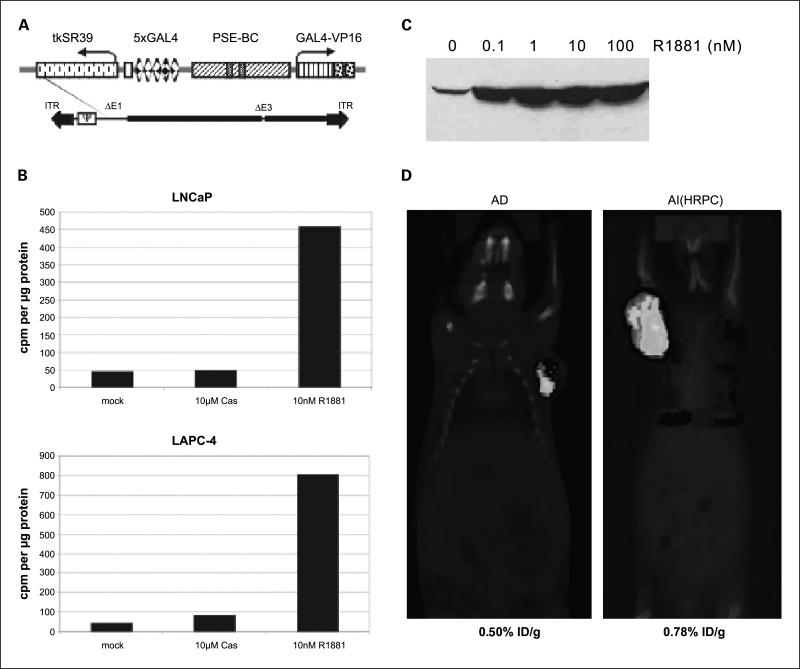Fig. 3.
The activity of AdTSTA-sr39tk and its application in micro-PET. A, schematic representation of the AdTSTA-sr39tk. The sr39tk gene is a HSV-tk variant with higher affinity for acycloguanosines. B, AdTSTA-sr39tk activity in AD prostate cancer cell lines LNCaP and LAPC-4. The cells were infected with AdTSTA-sr39tk at MOI = 1 and harvested 2 days later. The cell lysates were subjected to thymidine kinase enzyme assay. Phosphorylated forms of [3H]penciclovir were counted and plotted after normalization with total cellular protein. C, androgen regulation of expression from AdTSTA-sr39tk. LNCaP cells were infected with AdTSTA-sr39tk at MOI = 5 and incubated with 0 to 100 nmol/L R1881. Cells were lysed and subjected to Western analysis using anti-HSV-tk polyclonal antibody. D, combined micro-PET and micro-CT of LAPC-4 AD and AI tumor. AdTSTA-sr39tk (4 × 109 infectious units) was injected to AD and AILAPC-4 tumors. One week later, [18F]FHBG injected animals were anesthetized and scanned for micro-PET and micro-CT sequentially. The signal in the tumor was measured by percentage injected dose of substrate per gram of tissue (%ID/g) listed below the image.

